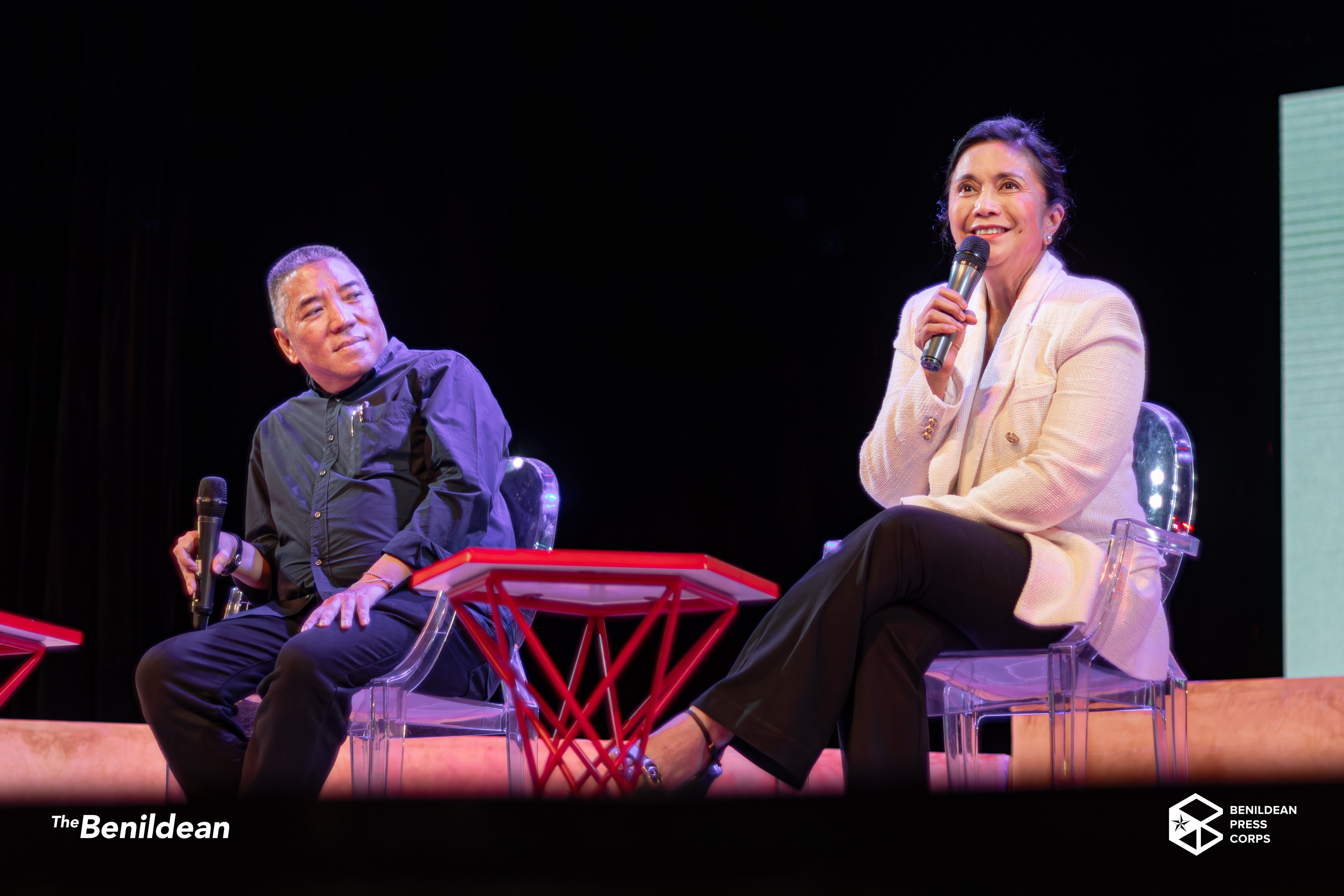The School of Multidisciplinary Studies (SMS) hosted a symposium with the theme "Inclusive Leadership: Quo Vadis? Bridging Divides and Creating History,” featuring distinguished guests included former Vice President of the Philippines, Atty. Ma. Leonor "Leni" Robredo, and prominent historian, Dr. Ambeth Ocampo. The event took place on Mar. 22 at the Design and Arts Campus Theater.
The event drew a diverse crowd of student leaders representing various organizations, including those from the Senior High School department and guests from the School of Deaf Education and Applied Studies (SDEAS), alongside faculty members and associates from Benilde. The event was hosted by Ms. Allen Pescasio and Ms. Gladys Lazo, professors under the Social Studies Department. The program official opened with a short message from Br. Edmundo "Dodo" Fernandez, FSC.
"As we embark on this profound dialogue today, we are brought together by a shared aspiration: to foster an inclusive and empowering leadership that transcends boundaries and shapes the course of history,” the Brother President said.
This was followed by an inspirational message from Mr. Angelo Lacson, Vice Chancellor for Academics. He stressed the importance of inclusive leadership in creating open-minded space and discussed what it means to truly be a leader. "Inclusive leadership fosters an environment where every voice is heard and valued, recognizing that true leadership lies in uniting, uplifting others."
The talk officially began with a lecture from Dr. Ocampo, who was introduced by Dr. Ronaldo Pante, a faculty member of the Social Science area. Dr. Ocampo has had a colorful resumé, among them: having held academic appointments across universities in Thailand, Japan, and Michigan, assuming the role of a Benedictine monk, and obtaining the Presidential Medal of Merit from the late former President Benigno Aquino III.
Dr. Ocampo gave an in-depth talk titled "Challenges of Leadership: Lessons from the Founding Fathers," which talked about past presidents of the Philippines, specifically about the (lack of) archival system for presidential papers. He dwelled more on Emilio Aguinaldo and Ferdinand Marcos Sr., discussing how the former's letters from his chief adviser, Apolinario Mabini, and the latter's diary entries can help historians and the general public understand the inner workings of their minds and administrations more.
"The best way to understand Philippine political life is to go to the beginning, is to go back to the founding fathers," he noted in the talk.
He also gave his own take on the notion that history repeats itself—with Dr. Ocampo stating that it is false: "History doesn't repeat itself. It has no force, it has no mind, it has no will of its own […] History is not repeating itself, it's people repeating history."
After the talk, there was a brief intermission by Hana Gieva Martillan and Sheryl Amadea, students from the Music Production program, who sang a cover of "Rosas" by Nica del Rosario, as a tribute to Atty. Robredo. The former Vice President was then introduced by Ms. Nicky Templo-Perez, Vice President for Lasallian Mission and Student Life.
The program concluded with a dialogue portion open to the audience. Among the discussion points were the possibility of a shift in paradigm within authority—of which Atty. Robredo affirmed it was possible. “The starting point really is to vote for people who are open to share power, kasi parang the empowerment of the sectors start from that eh.”
Atty. Robredo explained that, “If the leader is not open to share power, it is very difficult to empower the sectors, because there is always a resistance from the leadership itself.”
“One very good example is that one of the things we have been advocating for is the creation of people’s councils, because we felt that it is very necessary to provide a platform where ordinary people can participate in governance. We feel it’s a very good way of empowering them in the sense that all their inputs will be included in the planning, in the execution, in the monitoring, and evaluation of programs,” she elaborated.
Meanwhile, Dr. Ocampo added his thoughts, talking about how the education system in the country can also affect change. “I’d like to think that history is one of the ways to do it, because history is the way for people to be critical. But, unfortunately, the way that the educational system is run in this country, it’s also top-heavy. It’s always based on authority. [It] doesn’t teach you to ask questions. [It] doesn’t teach you to keep learning.”
“But history, in its proper sense, teaches you to be critical. Not to accept anything unless it is validated. And history becomes subversive because if you know it and we fight for it, people will realize that things don’t have to be the way they are.” he emphasized.
The symposium was live streamed via the SMS Virtual Hub YouTube channel. A recording of the talk full-length lecture and question and answer portion may be found here.


